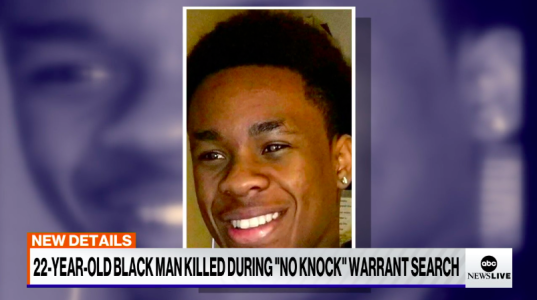
As we celebrate the history of Black culture and the people that made and are still making courageous efforts in the ongoing fight from freedom to equality, we are met with another reminder that police brutality and over-policing on Black, indigenous, and people of color are still a crisis in America—one that takes our Black sons, brothers, and fathers, leaving families shattered and communities traumatized.
Last week, we witnessed another murder of another Black man: Amir Locke, killed by Minneapolis police in a no-knock raid. We uplift his family and stand in solidarity with the community to mourn Amir.
Emotions run high in our Black families as mothers of Black sons have to explain why this Black man was murdered in his home by police that are supposed to protect the people. With heavy hearts and fearful spirits, mothers must release their sons to the world to engage in their daily lives, only hoping that their talks about how to conduct themselves when interacting with the police will be enough to keep them from being murdered as their Black skin has been weaponized in a system where racism is inherent.
It is even more frightening that you can be in your own home and be executed for a natural reaction to protect yourself and your family—even for legal gun owners like Amir, or people here in Texas where the permit-less carry is now law. It’s not rational to execute a no-knock warrant, essentially busting down someone’s door at any hour and without any warning, without also having a reasonable expectation that the person would try to protect themself or their family. At what point will we say this practice is not appropriate?
In nine seconds, another mother, father, and host of others lost a little more faith in police and the policies that govern and condone these senseless acts of murder. Nine seconds is not adequate time for anyone to process and respond to a no-knock warrant. Nor is it enough time for police to intentionally de-escalate a situation safely under such circumstances as they created. Nine seconds divided the community and police even further and gave us evidence of another case of police brutality on our Black men. Nine seconds sowed a lifetime of hurt for a mother who must bury her son, and left an entire community with another traumatic loss and no resolution in sight.
